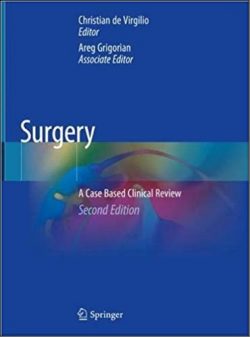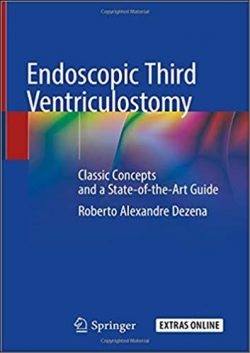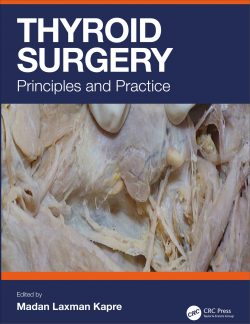Hip Joint Restoration is a comprehensive yet practical guide to the basic science and clinical applications of arthroscopy, arthroplasty, osteotomy and preservation surgery for the treatment of diseases and conditions of the hip. This generously illustrated text offers a comprehensive introduction to essential features of hip evaluation, the medical management of hip procedures, and treatment of specific conditions, and covers practical topics such as surgical anatomy of the hip, surgical approaches, instrumentation, and indications for arthroscopy and other surgical procedures aimed at restoration of the hip joint. Additional chapters cover clinical outcomes and equality of life following hip surgery, the current state of research and education of arthroscopic hip procedures throughout the world, other topics such as complications and rehabilitation in different patient populations. This book will be a useful resource for Orthopedic Surgeons and Osteopaths who perform open and arthroscopic hip preservation and total joint replacement, as well as for orthopedic residents and researchers.
This guide to the basic science and clinical applications of hip arthroscopy is a comprehensive introduction to the essential features of hip evaluations, medical management, and treatment of conditions, also featuring practical topics such as instrumentation.
Part One: Structure and Function of the Tissues of the Hip (Normal and Diseased).- Development of the Hip: Phylogeny and Ontogeny.- Anatomy – Cartilage.- Anatomy – Labrum.- Anatomy – Capsule and Synovium.- Fundamental and Clinical Considerations of the Muscles of the Hip.- Ligamentum Teres: Anatomy, Structure and Function.- Functional Mechanics of the Human Hip.- Part Two: Clinical Evaluation of Hip Function.- Function of the Normal Hip.- Outcome Instruments for Assessment of Hip Function.- Gait Analysis.- Evaluation of the Painful Hip.- Clinical Evaluation of Hip Function – Essential Features in the History.- Essential Findings in the Clinical Exam.- Part Three: Hip Pathology.- Osteoarthritis of the Hip.- Hip Disease Etiologies: FAI and Dysmorphias.- Synovial Pathology of the Hip.- Hip Pathology – Overload Syndromes.- Hip Disease Etiologies – Trauma.- The Understanding of Hip Etiologies – Osteonecrosis of the Femoral Head.- Part Four: Imaging Advances.- The Bony Morphology of Femoro-Acetabular Impingement.- Imaging of Cartilage Patho-Anatomy.- Magnetic Resonance Imaging of the Hip Labrum, Capsule and Synovium.- Extra-Articular Pathology of the Hip.- Magnetic Resonance Imaging of the Hip.- Imaging the Previously Operated Hip.- Advances in 2D and 3D Imaging for FAI Surgical Planning.- Part Five: Non Arthroscopic Treatment of Hip Disease.- The Natural History of Untreated Osteoarthritis of the Hip.- Non-Surgical Treatment (Indications, Limitations, Outcomes) – Injections.- Groin Pain in Athletes: Assessment and Non-Surgical Treatment.- The Painful Groin.- Limited Open Procedures.- Limitations of Open and Arthroscopic Surgical Technique for the Treatment of Femoroacetabular Impingement.- Open Surgical Treatment –Advantages and Complications of Modern Surgical Approaches.- Part Six: Arthroscopic Treatment of Hip Disease.- The History of Hip Arthroscopy.- Indications for Hip Arthroscopy.- Arthroscopic Treatment –Surgical Anatomy.- Hip Arthroscopy: Anatomy and Technical Pearls of the Procedure.- Arthroscopic Treatment – Principles of Hip Distraction.- Arthroscopic Treatment – Fundamentals of Hip Joint Instrumentation.- Arthroscopic Treatment – Principles and Devices for Hip Joint Access.- Arthroscopic Treatment- Layout of the Operating Room Surgical Approaches-Lateral.- Arthroscopic Treatment – Layout of the Operating Room- Surgical Approaches-Supine.- Optimizing Exposure and Accessibility for Arthroscopic Correction of Femoroacetabular Impingement.- Anesthesia and Analgesia for Hip Surgery.- Part Seven: Surgical Treatment of Specific Hip Conditions.- Biologic Labrum.- Specific Tissues and Conditions – Chondral Lesions.- Special Patients and Conditions – Femoro- Acetabular Impingement.- Arthroscopic Treatment of Combined Cam and Pincer-type Femoroacetabular Impingement.- Special Patients & Conditions: Other Forms of Impingement (Ischiofemoral, Pectineofoveal).- Synovial Disease.- Surgical Treatment of Specific Hip Conditions: Ligamentum Teres Injuries.- Treatment of Specific Conditions: Loose Bodies.- Specific Tissues and Conditions – Trauma.- Arthroscopic Treatment- Bony Lesions.- Specific Tissues and Conditions – Osteonecrosis, Avascular Necrosis.- Specific Tissues and Conditions – Pediatric Conditions.- Specific Tissues and Conditions – Extra-Articular Pathologic Conditions.- Part Eight: Special Patients and Conditions – Elite Athletes.- Special Patients and Conditions – Capsular Laxity Including Ehlers-Danlos.- Current Procedures and Techniques for the Treatment of Osteonecrosis of the Hip.- Special Patients and Conditions – Sports Hernia.- Acetabular Dysplasia: A Classification.- Quality-of-Life after Hip Arthroscopic Surgery.- Evaluating the Outcome of Hip Preserving Procedures: Patient Function, Satisfaction, and Impairment.- Part Nine: Articular Lesions: Prevention and Treatment.- Biology of Cartilage Regeneration.- Microfracture in the Hip.- Cartilage Grafting.- The Use of Fibrin Adhesive for Cartilage Repair in Hip Arthroscopy.- Novel Techniques in the Treatment of Chondral Lesions of the Hip.- Osteochondral Allografting of the Hip.- Part Ten: Hip Osteotomies.- Special Patients and Conditions – Acetabular Dysplasia.- Hip Osteotomies – Acetabular.- Birmingham Interlocking Periacetabular Osteotomy.- Mini-Incision Periacetabular Osteotomy.- Results of Periacetabular Osteotomy (PAO).- Proximal Femoral Osteotomy in Hip Preservation.- Combined Periacetabular Osteotomy and Proximal Femoral Osteotomy for Severe Hip Deformity.- Part Eleven: Joint Replacement.- Partial Joint Replacement.- Metal on Metal Hip Resurfacing: Current Indications and Results.- Total Hip Replacement in the Young Patient.- Short Stem Total Hip Replacement.- Hip Replacement in the Athlete.- Arthroscopy Following Total Hip Replacement.- Part Twelve: Functional Outcomes.- Activities, Symptoms and Expectations of Patients Undergoing Hip Surgery.- Rehabilitation after Hip Arthroscopy.- The Importance of Validated Scoring Systems for the Hip.- Survivorship and Clinical Results after Hip Arthroscopy: How Should We Define a Good Treatment Option?.- Part Thirteen: Worldwide Experience with Hip Arthroscopy.- UK and European Experience with Hip Arthroscopy.- Africa.- History of Hip Arthroscopy in the United States.- Worldwide Experience with Hip Arthroscopy – Australia.- Worldwide Experience of Hip Arthroscopy: Mexican Experience.- Worldwide Experience with Hip Arthroscopy: South America.- Hip Arthroscopy in India: A Perspective.- The Worldwide Experience with Hip Arthroscopy – Japan.- Hip Arthroscopy in China.- Part Fourteen: Practice Management and Education.- Setting Up a Hip Arthroscopy Service.- Education and Hip Arthroscopy.- Part Fifteen: Research.- Development Anatomy and Its Impact on Hip Function.- Research Advances in Understanding the Genetic Basis of Hip Disease.- Fluid Mechanics Pre and Post Capsulotomy.- Research into the Application of Imaging to the Diagnosis of Hip Disease.- Cell Therapy in Hip Surgery.- Surgical Navigation of the Hip for Femoroacetabular Impingement.- Outcomes Following Hip Surgery.- The Critical Role of Registries in Documenting the Outcomes of Hip Preservation Surgery.- Part Sixteen: The Critical Role of Registries in Documenting the Outcomes of Hip Preservation.- The Future of Hip Arthroscopy>
“This is a very comprehensive atlas and textbook on orthopedic surgery of the hip. The normal anatomy and biomechanics of the hip are discussed in detaii. The athology and radiographix anatomy are done well. The role of arthroscopy, osteotomy, hip repair and hip replacement options are explained with their roles for recovery are diagrammed with 1000s of pages of color pictures and other charts. … The book is good for orthopaedic surgeons and trainees in this area.” (Joseph J. Grenier, Amazon.com, January, 2017)
Joseph C. McCarthy, MD
Orthopedic Surgery, Hip Joint Arthroplasty/Hip Arthroscopy
Massachusetts General Hospital
Boston, MA, USA
Orthopedic Surgery
Director, Kaplan Joint Center
Newton-Wellesley Hospital
Newton, MA, USA
Philip C. Noble, BE, MEngSci, PhD
Director of Research
Institute of Orthopedic Research and Education
Houston, TX, USA
Orthopedic Research
Joseph Barnhart Department of Orthopedic Surgery
Baylor College of Medicine
Houston, TX, USA
Richard N. Villar, MSc(Hons), MA, FRCS
Consultant Orthopedic Surgeon
Orthopedics
The Villar Bajwa Practice
Spire Cambridge Lea Hospital
Cambridge, UK
Hip Joint Restoration is a comprehensive yet practical guide to the basic science and clinical applications of arthroscopy, arthroplasty, osteotomy and preservation surgery for the treatment of diseases and conditions of the hip. This generously illustrated text offers a comprehensive introduction to essential features of hip evaluation, the medical management of hip procedures, and treatment of specific conditions, and covers practical topics such as surgical anatomy of the hip, surgical approaches, instrumentation, and indications for arthroscopy and other surgical procedures aimed at restoration of the hip joint. Additional chapters cover clinical outcomes and equality of life following hip surgery, the current state of research and education of arthroscopic hip procedures throughout the world, other topics such as complications and rehabilitation in different patient populations. This book will be a useful resource for Orthopedic Surgeons and Osteopaths who perform open and arthroscopic hip preservation and total joint replacement, as well as for orthopedic residents and researchers.
A practical guide to the basic science and clinical applications of arthroscopy, arthroplasty, osteotomy and preservation surgery for the treatment of hip diseases and conditions
Offers a comprehensive introduction to essential features of hip anatomy, imaging, evaluation, medical management and treatment of specific conditions
Comprised of contributions from leaders in hip surgery from around the world for a truly global perspective





